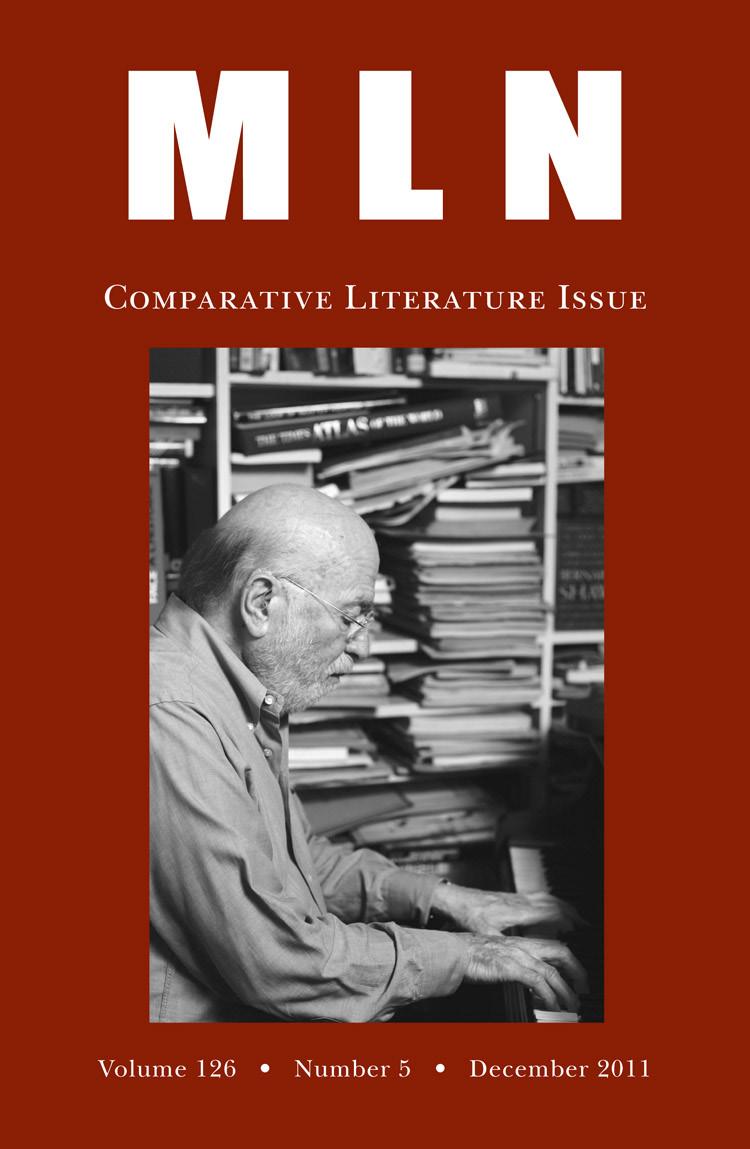
3 minute read
Excerpt from MLN "Childhood and Philosophy"
Paola Marrati
There is nothing “childish” about childhood events; they are awfully serious. True psychoanalysis, the social sciences, and anxious parents (like myself) seem to know quite well how those events are important, bound to shape much of children’s future lives. But this is not exactly, or not only, what Cavell is saying.
Advertisement
What he emphasizes is that childhood events are event of the life of mind: they are intellectually powerful, as serious as any adventure of the mind can be. And if this is the case, it is because they face the daunting task of understanding “what the world is, what its things and persons are to expect of each other.” Stanley could not have said more plainly that what is at stake in childhood’s events is “nothing more and nothing less” than what is at stake in philosophy itself–at least in a non professionalized conception of philosophy, which leaves the question open of what “becoming professional” does to philosophy and to those who make of it their job, of what measure of faithfulness or betrayal can be achieved, or tolerated: all important issues for Cavell in Little Did I Know and elsewhere that I leave gladly on the side for today. That philosophy does not wait for the age of “reason” or “majority,” to use
Kant’s famous terms in What is Enlightenment?
To happen to us should not come as a surprise to readers of Cavell, nor should the question of what image of reason, or thought, the essential connection between philosophy and childhood brings to the fore. As for the first point, I will only recall that it is precisely from the perspective of the child who is initiated into language that Cavell interprets the Philosophical Investigations, and that it is from the perspective of my (adult) conversation with a child that he develops his marvelous analyses of what it means to learn words and project them in always new contexts in the Claim of Reason. Not to mention the insistent, almost haunting, presence in Little Did I Know of Augustine’s recounting learning to speak in Confessions. It is by taking seriously the point of view of the child that Cavell can say, as he does in Must We Mean What We Say that “…we learn language and learn the world together…they become elaborated and distorted together, and in the same places.” Or, as he does in the Claim of Reason:
When you say “I love my love” the child learns the meaning of the word “love” and what love is. That (what you do) will be love in the child’s world; and if it is mixed with resentment and intimidation, then love is a mixture of resentment and intimidation, and when love is sought that will be sought. When you say “I’ll take you tomorrow, I promise”, the child begins to learn what temporal durations are, and what trust is, and what you do will show worth of trust.
Of course the person, growing, will learn other things about these concepts and “objects” also. They will grow gradually as the child’s world grows. But all he or she knows about them is what he or she has learned, and all they have learned will be part of what they are.
And what will the day be like when the person “realizes” what he ”believed” about what love and trust and authority are? And how will he stop believing it? What we learn is not just what we have studied; and what we have been taught is not just what we were intended to learn. What we have in our memories is not just what we have memorized.
As these passages and many other suggest, it is because we come into life as children that philosophy happens to us and will not leave us alone-like others, like ourselves: no matter how hard we try, we can’t escape from such dangerous encounters avoidance is a mode, and a fateful one, of dealing with these encounters and not a way of setting them aside. Such a possibility is not open to us. And then we can understand why Cavell defines philosophy, in its more explicit form, as the education of grown-ups.
Notes
Cover Images from Mystic Story
Page 4
Text from Dictionary.com
Page 5
Text from The Honey Pop
Image from @BANDLUCY_mystic on Twitter
Page 7-8
Text from Melon
Translated by Cynthia Park
Images from Mystic Story on Naver Post
Page 9-10
Text from Melon
Image from Peach Kpop
Page 11
Text from Brainy Quote
Page 13-32
Text from Melon
Translated by BAND CODED 2.0 on YouTube, Color Coded Lyrics, and Cynthia Park
Images from LUCY ISLAND and 1thek on YouTube
Page 34
Text from LUCY ISLAND on YouTube
Translated by LUCY ISLAND on YouTube
Page 36-37
Interviewed by Cynthia Park via Google Forms
Page 38
Text from Brainy Quote
Page 40
Text from LUCY Childhood Album
Images from Melon
Translated by @DearWalwalSubs on Twitter
Page 42-43
Text from Brainly Quote and JSTOR
Image Wikipedia
Page 44
Text from JSTOR
Image from muse.jhu.edu
Back Cover
Image scanned from LUCY Childhood album






